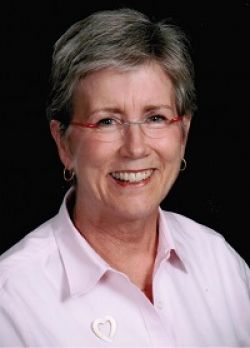PhD, OTR/L, ATP/SMS, RESNA Fellow
University of Louisville School of Medicine
Dept of Neurological Surgery, Division of Physical Medicine & Rehabilitation
Louisville, KY
Member since: 1989
Link to CV
Brief Summary
As an Occupational Therapist and AOTA member, I bring a career-long interest in and commitment to assistive technology as an effective tool for human adaptation and empowerment. In addition, my 30+ years of involvement with RESNA has nurtured a keen appreciation for close partnership with engineering knowledge and the design and innovation of effective AT devices. The influence of these two disciplines has led me to a holistic view of all the systems that that must collaborate to enable access to AT for individuals with functional impairment. In my view, impairment becomes “disability” when the environment—both human and non-human—fails to offer consumers the supports they need for full participation and self-actualization. All humans are “occupational” beings and find their full identity in what they can do and become.
I would be honored to serve RESNA as president-elect and its future president. Your vote would provide me with an opportunity to further expand the strides that RESNA and RESNA staff have made to prepare our organization for meaningful contributions in the 21st Century. I would relish the opportunity to communicate the importance of this dedicated interdisciplinary organization to those waiting for its message and seeking its expertise.
Professional Background
First, I am an occupational therapist who has focused my practice on skilled practice in assistive technology and complex seating and wheeled mobility. I have provided AT services in both hospital and university-based AT clinics as well as in community-based organizations and private practice. After earning a PhD at the University of Pittsburgh, I spent more than 10 years engaged in research and education in the area of wheelchair transportation safety. As healthcare professional who uses a prosthetic limb, I have always tried to serve as a link between disability activism and professional and healthcare services. I have found it essential to be a life long learner.
RESNA Organizational Experience
During the years of my membership in RESNA I have clearly benefitted from attendance at annual conferences and preconference sessions and daily participation in RESNA listserves. I served for 3 years as chair of the occupational therapist professional specialty group (PSG), and 8 years as chair of all PSGs This role allowed me to serve as an ex-officio member of the RESNA Board for 8 years. In 2015, I was elected to serve a first term as a voting RESNA board member. I currently serve on the ad hoc committee working for the Accreditation of Educational Programs in Assistive Technology with the support of CAAHEP.
Which of your contributions to RESNA are you most proud of?
My efforts to build, organize and empower the chairs of the PSGs to serve as leaders and motivators of their fellow professionals whether engineers, educators, therapists, providers or product developers. I still feel that this is an important connector for those in an interdisciplinary organization.
List honors or awards received from professional organizations with whom you are involved.
2015 RESNA Fellow
List the boards you are presently serving on or have served on (RESNA and others) and what your main contributions were.
- The American Occupational Therapy Foundation Board -Trustee
- Cliff View Terrace Homeowners Association Board – President & Secretary
- United Cerebral Palsy of Allegheny County – Technology Committee
- Colorado Assistive Technology Board of Directors - member
Describe a strategy for building capacity, fostering innovation, leading change, or managing resources that you have successfully implemented and how that will help you to help RESNA.
In my graduate work, I created and supported WheelchairNet, a virtual community concept inspired by Dr. Doug Hobson in 1997. It attempted to use the Internet (still in its infancy) as a focal point for product information, daily living resources, access to public laws and education, and a forum for asking and answering questions. It gave me the lived experience of seeing the WWW serve as a “hub” for support, expertise, knowledge, fun and creativity. Our own RESNA website with the support of capable RESNA staff now functions as a similar type of “hub” linking many community members together at many levels. My own experience with WheelchairNet prepared me for this brave new world that puts information in the hands of those that seek it.
What do you see as the biggest internal or external challenge(s) facing RESNA today, and how would you suggest the organization address them?
RESNA needs to grow its membership! Those members who have driven the creation and expansion of this field of rehab engineering and assistive technology are moving toward retirement. Yet, more people than ever need access to the services and products that support this interdisciplinary field. RESNA needs to expand the work force, develop new technologies to meet the demands of the ever-changing digital world, and transmit to new members the enthusiasm, passion and creativity that has propelled the field to this point. Others need to experience the joy of solving problems which enable others to do and become who they dream of being.
Volunteer leadership in any organization requires a commitment of personal time. Please include a statement that indicates whether you can devote the necessary time (typically 5-10 hours/month).
I am stepping back from full time employment and expect to have the time to devote to this greater service to RESNA.